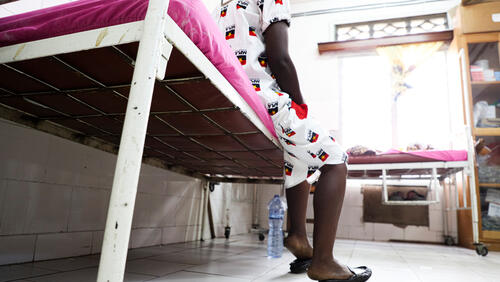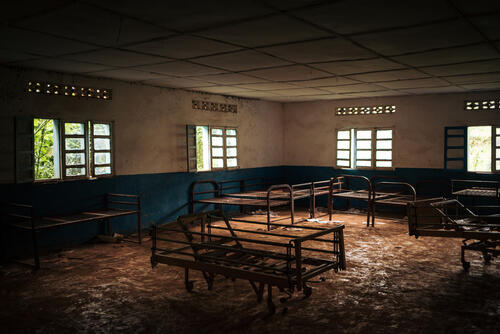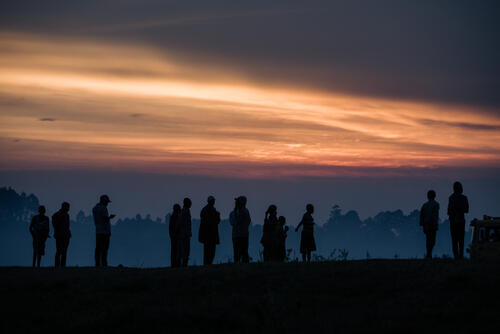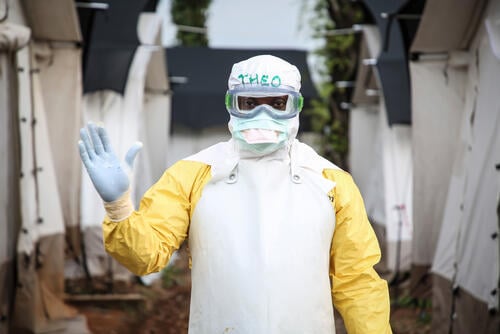Nearly half a million people are living with HIV in the Democratic Republic of Congo (DRC) and thousands are dying unnecessarily<p>All data from the latest UNAIDS report available at: <a href="https://www.unaids.org/fr/regionscountries/countries/democraticrepublicofthecongo">https://www.unaids.org/fr/regionscountries/countries/democraticrepublicofthecongo </a></p>. Testing and effective treatment has existed for years, but many Congolese still don’t have access to it, or start treatment too late. As a result, there is a high need for medical care that the local health system cannot properly cope with. Faced with this reality, we are strengthening the provision of HIV care in Kinshasa.
HIV prevention and access to care remain huge challenges in the DRC. Access to voluntary testing is almost impossible, and many health facilities do not provide free testing for people with symptoms. This situation is further compounded by the level of fear and stigma surrounding the virus. The impact is clear: according to UN estimates, almost a quarter of people living with HIV in the DRC simply don’t’ know they have the virus.
Many people with HIV are tested too late. They therefore start treatment late, which increases the risk of complications. Others interrupt their treatment because of a lack of available drugs, psychological support or because of the cost of treatment, even though antiretroviral (ARV) treatment is supposed to be free. Consequently, many patients develop an advanced stage of the disease.
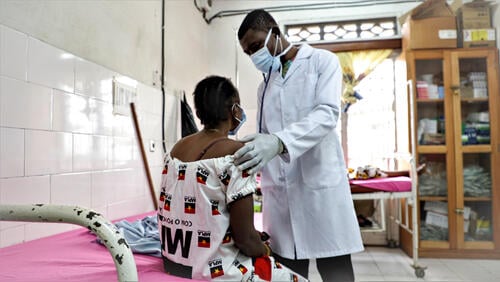
“Too many patients arrive here in very bad shape, with severe co-infections such as tuberculosis,” says Dr Pulchérie Ditondo, MSF doctor at the Kabinda Hospital Centre (CHK), the capital's referral facility for patients with advanced HIV.
“The fact that there are still so many patients at this stage of the disease reflects the extent of problems with screening and care,” she says. “For years, our inpatient beds at the hospital were mostly all occupied, and consultations were managed from dawn to dusk. That’s why we decided to support the provision of care in other facilities to meet the demand for care.”
According to UNAIDS, between 13,000 and 29,000 new HIV infections occur each year in the DRC. These are people who need free and rapid access to testing and treatment to avoid developing potentially fatal complications.
Unfortunately, the DRC still suffers from a lack of national and international resources. In 2020, nearly 17,000 people died of HIV in the DRC, deaths that could have been prevented with the right treatment.
Some patients ran away when they heard we were going to take care of HIV-positive people... The stigma surrounding HIV in this area is having serious consequences.Dr Adolphe Byakausa Matondo, medical director Luyindu Hospital Centre
Strengthening HIV care in the capital
For the past 10 years, MSF has been supporting hospitals and health centres in Kinshasa to strengthen medical care for HIV and to carry out laboratory tests. Currently, our teams support two hospitals and four health centres, where everyone can access free care and testing.
“We have chosen to support facilities located in areas where many patients from the CHK actually come from,” says Dr Ditondo. “This brings patients closer to their doctors, as close to home as possible, and thus avoids long journeys.”
Tucked away in the working-class district of Mbinza-ozone, the Luyindu Hospital Centre (CHL) is one of the facilities that our teams support for HIV care. Every month, about 30 HIV-positive patients are treated there. Already six of the seven beds for patients living with HIV are occupied. An evolution in patients’ admission that was not without some upheaval at the start.
“Some patients ran away when they heard we were going to take care of HIV-positive people,” says Dr Adolphe Byakausa Matondo, CHL's medical director. “The stigma surrounding HIV in this area is having serious consequences, so we did a lot of awareness raising in the hospital and community. Today, fortunately, things have changed a lot.”
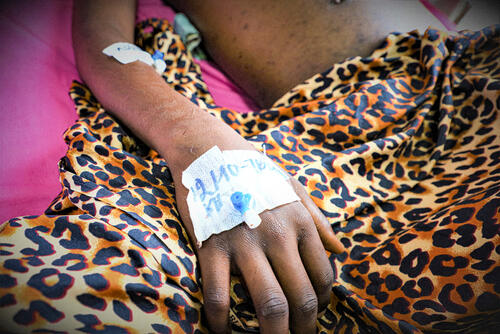
“Today, I am on my feet”
Sarah knows the power of such stigma all too well. Admitted to the CHL emergency room in July, she was abandoned by her family and husband when the medical staff told her that she had contracted HIV.
“I arrived at the hospital in critical condition. I was hospitalised here for two months,” she says. “Today, I am back on my feet. I was able to leave the hospital.
“But I now live in the parish because my family have disowned me. Fortunately, the medical team is here to encourage me, fight and follow my treatment properly.”
Our teams have been involved in the fight against HIV/AIDS in Kinshasa since 2002. In 2020, nearly 2,000 patients were followed-up in their treatment by our teams in the capital, including 1,337 hospitalisations. In addition to providing care, we also carried out nearly 8,200 HIV tests in Kinshasa.



